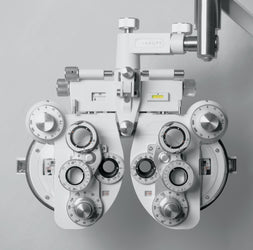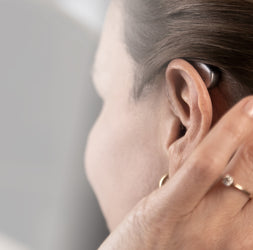Hay Fever Symptoms
Many of us are already very familiar with the general symptoms of hay fever, which include:- a tickle in the nose and sometimes the back of the throat too
- the constant sneezing and sometimes coughing
- runny or stuffy, itchy nose
- swollen, itchy eyes
- fatigue and sometimes headaches For asthmatics, these symptoms can be far worse and can even trigger sleep apnoea, wheezing and other breathing issues.
Hay Fever and the Eyes: Symptoms and Signs
As well as affecting our noses and throats, hay fever can affect our eyes. In fact when it comes to hay fever season, some people find their main issue is with their eyes.Let’s see more in detail the symptoms caused by hay fever when it comes to your eyes. These include:
- red eyes
- swollen eyes
- itchy, gritty, runny eyes
- puffy eyes
- dryness and general eye discomfort
- blurry vision and similar temporary problems
Hay Fever Eye Treatment
There are numerous over-the-counter options for hay fever treatment. Even though these cannot permanently relieve hay fever symptoms, they are still a very helpful temporary solution. Hay fever treatment usually include antihistamine syrups and tablets for general symptom relief,hay fever eye drops that target the typical symptoms of eye discomfort, itching, irritation, etc. to help alleviate them, and nasal sprays to help target nasal issues.Should you find that over-the-counter hay fever treatment is not offering relief, then contact your GP who may be able to prescribe an alternative treatment that will work better for you.
Eye Drops for Hay Fever
Hay fever eye drops target the allergic response the eye has to the allergen it is exposed to (in this case pollen). There are two main types of eye drops available, which interact in different ways with our antibodies to alleviate the symptoms of hay fever for a short while (few hours in most cases). These are antihistamine drops and mast cell stabilizers. Alongside the use of these specific drugs, the use of eye drops for dry eyes, such as Thealoz Duo and Hycosan Extra also helps provide some temporary relief to irritation and dryness caused by hay fever and are sometimes sufficient in providing relief in most cases.Contact Lenses and Hay fever
Hay fever season can be a tricky time for those who wear contact lenses as symptoms can be worse.If you use monthly contact lenses, it is advisable to consider switching to dailies. This is because pollen can attach to the lens surface and it might stick to your lenses even if you regularly clean them. With daily contact lenses this is not an issue anymore, as you wear a new pair everyday.
We also recommend not to use any hay fever-specific eye drops with your contact lenses in, especially if you bought them with medical prescription. If you use dry eye drops, make sure they are contact lenses friendly and preservative-free, and they will surely offer some temporary relief.
Lastly, consider wearing your glasses more often in hay fever season especially if you find that your eyes are very irritated with contact lenses in.
If you have any queries or questions in regards to contact lenses and hay fever, please call us or come in-store and a member of staff will be happy to assist you.
Hay fever and the Eyes: our Top Tips
To summarise our recommendations, we have compiled a list of the DO’S and DON’TS during hay fever season to help preserve your eye health.DO’S
- DO try avoid going out - when outdoor, we are more exposed to pollen than indoor. If you do have to go out, wrap-around sunglasses are a good way to reduce pollen exposure.
- DO try and keep windows closed - and if they are open, keep net curtains down to ensure you are minimising your exposure to pollen.
- DO line your nostril base with vaseline - this is an effective way to trap the pollen so it doesn’t enter the nasal passage.
- DO brush down your outerwear - and wash both yourself and your clothes when you come indoors to remove any pollen that may have attached to your hair and clothing.
- DO use your hay fever eye drops/ nasal sprays/ tablets and syrups as advised by your optometrist or pharmacist
DON'TS
- DON’T keep flower cuttings in the house
- DON’T garden and avoid parks/forests/nature trails/etc. where there the chance of exposure to pollen increases
- DON’T dry clothes outside as they will catch pollen
- DON’T smoke or be around smoke as this can worsen your symptoms
- DON’T let pets in the house as they can also bring pollen indoors
- DON’T rub your eyes as this can exacerbate symptoms








